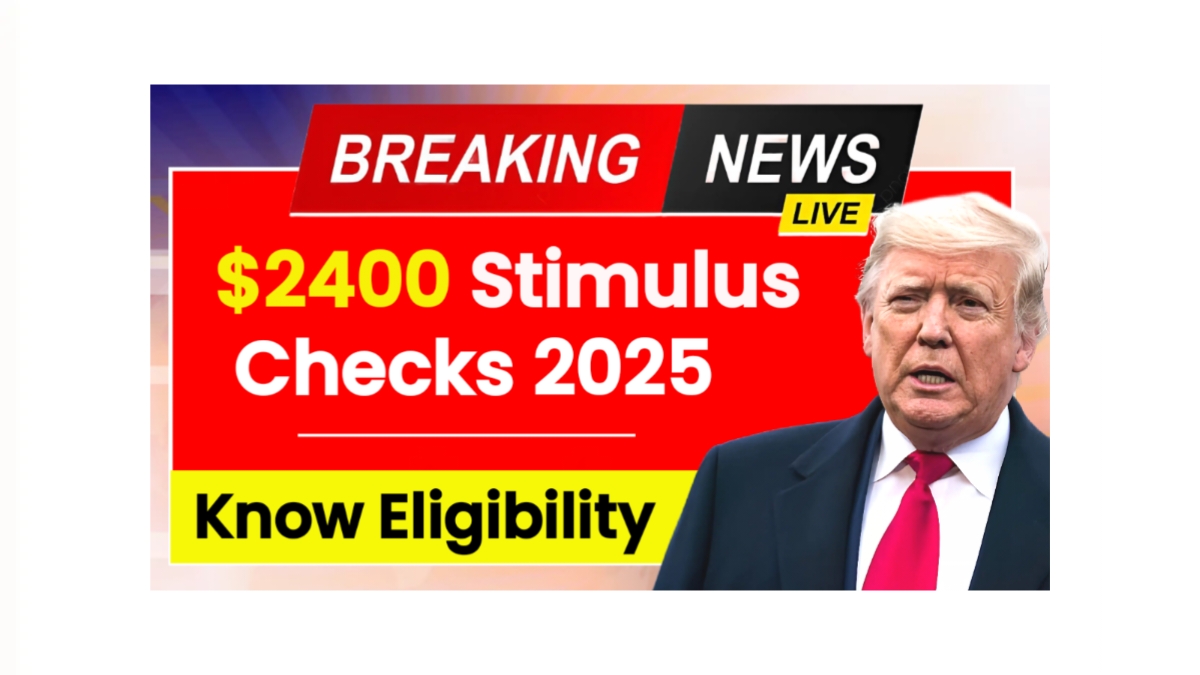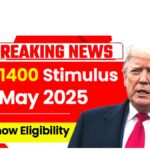$2400 Stimulus Checks 2025: Many Americans continue to face significant financial challenges as the cost of living rises across the country. Essential expenses such as food, housing, healthcare, and fuel have become increasingly difficult to manage for low-income households. These financial pressures create daily stress for millions of families who struggle to make ends meet. With inflation affecting purchasing power, many individuals find themselves unable to cover their basic needs despite working diligently. The strain of these economic hardships has led to growing calls for additional government assistance to help bridge the gap between income and expenses for vulnerable populations.
Rumors of a New Stimulus Program
Reports have been circulating online about a potential $2,400 stimulus check that might be issued by the Internal Revenue Service (IRS) in 2025. According to these discussions, this financial assistance would aim to provide relief to Americans struggling with inflation and rising costs. While these reports have gained traction on various platforms, it’s important to note that no official announcement has been made by the federal government regarding such a program. The rumored stimulus would supposedly target low-income individuals and families who need support managing their daily expenses and maintaining their standard of living during challenging economic times.
Potential Benefits of the Stimulus Checks
If implemented, a $2,400 stimulus check could provide meaningful relief for many Americans facing financial difficulties. This monetary assistance could help recipients pay essential bills, cover medical expenses, purchase groceries, and address other necessary costs. Beyond the immediate practical benefits, such financial support could also reduce the psychological stress associated with economic hardship. For many families living paycheck to paycheck, a stimulus payment would provide a temporary buffer against financial insecurity. Additionally, from an economic perspective, stimulus funds typically flow back into the economy as recipients spend the money on goods and services, potentially supporting local businesses and contributing to economic activity.
Expected Eligibility Requirements
While no official eligibility criteria have been established for this rumored stimulus program, typical requirements for such government assistance often include citizenship or permanent residency status, income thresholds, and tax filing compliance. Recipients would likely need to provide proof of residence, income documentation, and household information. A valid Social Security Number would almost certainly be required to receive payments. As with previous stimulus programs, individuals earning above certain income thresholds would probably be ineligible for the full payment or might be excluded entirely. The goal would be to target assistance toward those with the greatest financial need rather than distributing payments universally.
Checking Eligibility and Application Process
If the $2,400 stimulus checks become reality, eligible individuals would likely need to verify their status through the IRS website or other official channels. Based on previous stimulus programs, those who have filed recent tax returns might receive payments automatically if they meet the eligibility requirements. Others might need to complete an application process to confirm their eligibility. Accurate information would be essential when applying, including correct Social Security Numbers, postal codes, and tax identification details. Supporting documentation might be required to verify income levels, residency status, and other qualifying factors. Thorough review of application materials before submission would help ensure timely processing.
Current Status and Timeline
As of now, there has been no official announcement from the IRS or other government agencies regarding the implementation of $2,400 stimulus checks for 2025. The information circulating online remains speculative. The federal government has not established a payment schedule or distribution timeline for such a program. However, given ongoing economic challenges and precedents set by previous stimulus initiatives during times of financial hardship, some form of assistance may be considered in the future. Americans interested in potential stimulus programs should monitor official government websites and reliable news sources for accurate information rather than relying on unverified reports or rumors.
The Broader Economic Context
The discussion of potential stimulus checks takes place within a broader economic context of inflation concerns and financial instability for many households. Government assistance programs typically aim to address immediate financial needs while broader economic policies work to address systemic issues. Any future stimulus program would likely be part of a larger strategy to support economic recovery and stability. Policymakers must balance providing necessary relief to struggling Americans with concerns about federal spending and potential inflationary effects. The consideration of stimulus payments reflects ongoing debates about the role of government in supporting citizens during economic challenges and the most effective approaches to addressing financial hardship.
While Americans await official information about potential stimulus programs, financial planning remains essential. Individuals facing economic challenges should explore existing assistance programs at federal, state, and local levels. Many communities offer resources for food assistance, housing support, utility bill help, and healthcare access. Financial counseling services can also provide guidance on managing limited resources effectively. Should a stimulus program be implemented in 2025, it would provide welcome relief for many households but would likely be a temporary measure rather than a long-term solution to financial challenges. In the meantime, staying informed about legitimate assistance opportunities through official channels remains the best approach.
Disclaimer: This article is for informational purposes only. The described stimulus program has not been officially announced by the U.S. government. Readers should consult official government sources for verified information about assistance programs.



